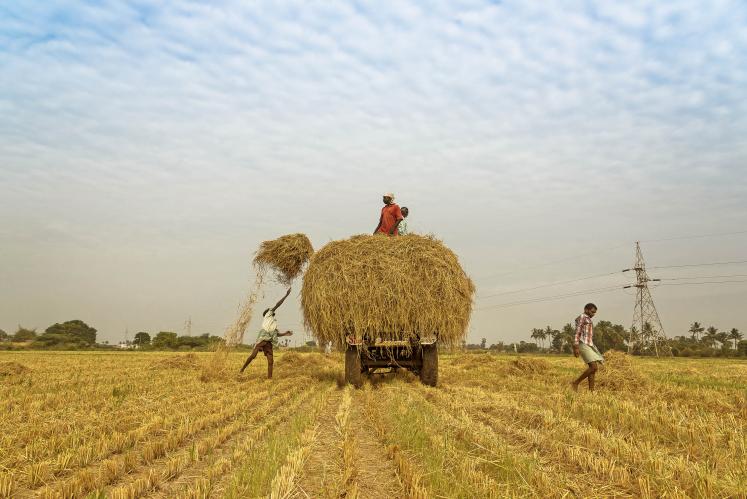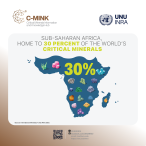UNU-IAS will co-organize a thematic track session of the 2025 International Forum for Sustainable Asia and the Pacific (ISAP) discussing the role of socio-ecological production landscapes and seascapes (SEPLS) in advancing the Nexus Approach, building on global efforts to integrate biodiversity and ecosystem services into policy and practice.
SEPLS are dynamic mosaics of habitats and land/sea use that provide the goods and services needed for human life while being managed to maintain biodiversity. The Nexus Approach seeks to maximize synergies and minimize trade-offs between biodiversity, water, food and health by identifying interdependencies between sectors and systems.
This session will discuss how SEPLS embody the Nexus Approach, and the methods and factors for successful real-world implementation. It will combine a scientific conceptual framework, case studies from Ghana and India by members of the International Partnership for the Satoyama Initiative (IPSI), and a panel discussion.
Participation & Registration
To participate online, please register in advance.
Please note that participants in UNU events may appear in photography, screen captures, videos and/or audio. For further information please refer to Events.
Language
The event will be held in English.
Programme
Opening Remarks
Kazuhiko Takeuchi (President, IGES; Visiting Professor, UNU-IAS)
Session Framework
Koji Miwa (Research Manager, IGES)
Case Study Presentation 1
Yaw Osei-Owusu (Executive Director, Conservation Alliance International, Ghana)
Case Study Presentation 2
Siva Ramamoorthy (Professor, Vellore Institute of Technology, India
Panel Discussion
Moderator: Koji Miwa
Panellists:
- Diana Mangalagiu (Professor, University of Oxford & Neoma Business School; CLA of IPBES Nexus Assessment)
- Yaw Osei-Owusu (Executive Director, Conservation Alliance International, Ghana)
- Pamela Owusuwaa (National Project Coordinator, Conservation Alliance International)
- Siva Ramamoorthy (VIT, India)
- Osamu Saito (IGES; CLA of IPBES Nexus Assessment)
Closing Remarks
Hideki Kawai (Deputy Director of Biodiversity Strategy Office, Nature Conservation Bureau, Ministry of the Environment, Japan)
Organizers
This event is organized by the Institute for Global Environmental Strategies (IGES) in collaboration with Ministry of the Environment, Japan (MOEJ) and UNU-IAS.
Background
In December 2024, the Intergovernmental Science-Policy Platform on Biodiversity and Ecosystem Services (IPBES) approved the Nexus Assessment, which evaluated the interlinkages between biodiversity, water, food, and health. The Nexus Approach seeks to maximize synergies and minimize trade-offs in these interrelationships. A key finding is its effectiveness in addressing environmental crises, including biodiversity loss, pollution and climate change.
The Satoyama Initiative, proposed by the Government of Japan and UNU-IAS, and endorsed at the 10th meeting of the Conference of the Parties to the Convention on Biological Diversity (CBD COP10) in Aichi, Japan in 2010, promotes landscape and seascape approaches for biodiversity and human well-being, focusing on SEPLS.




